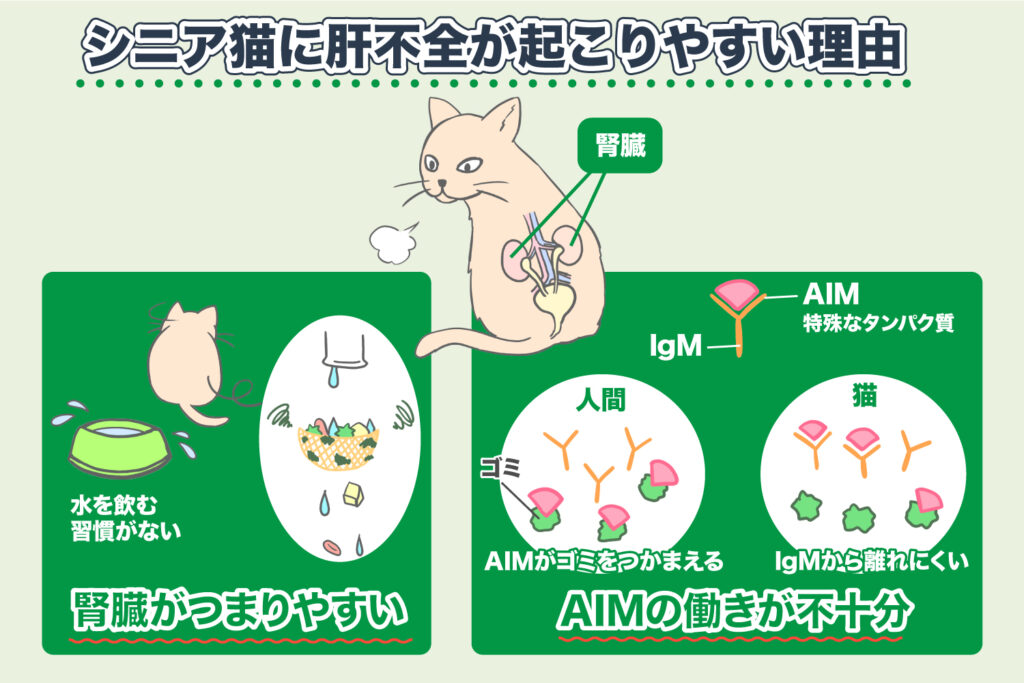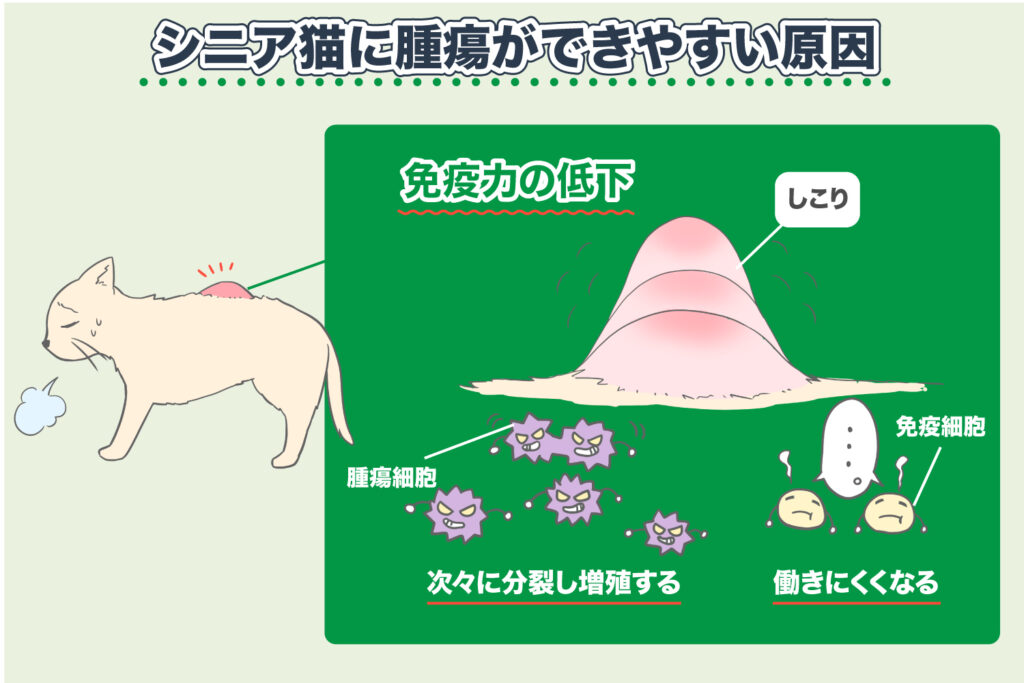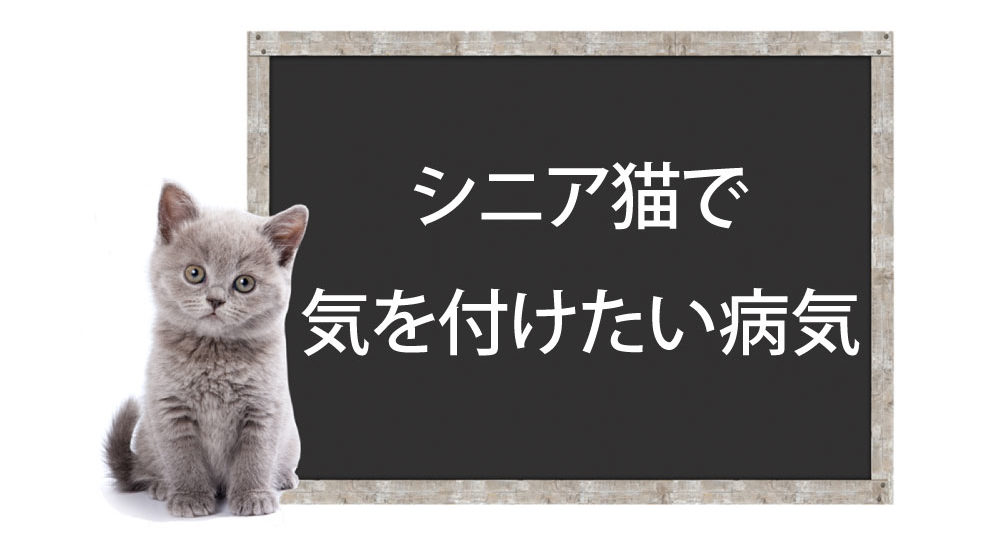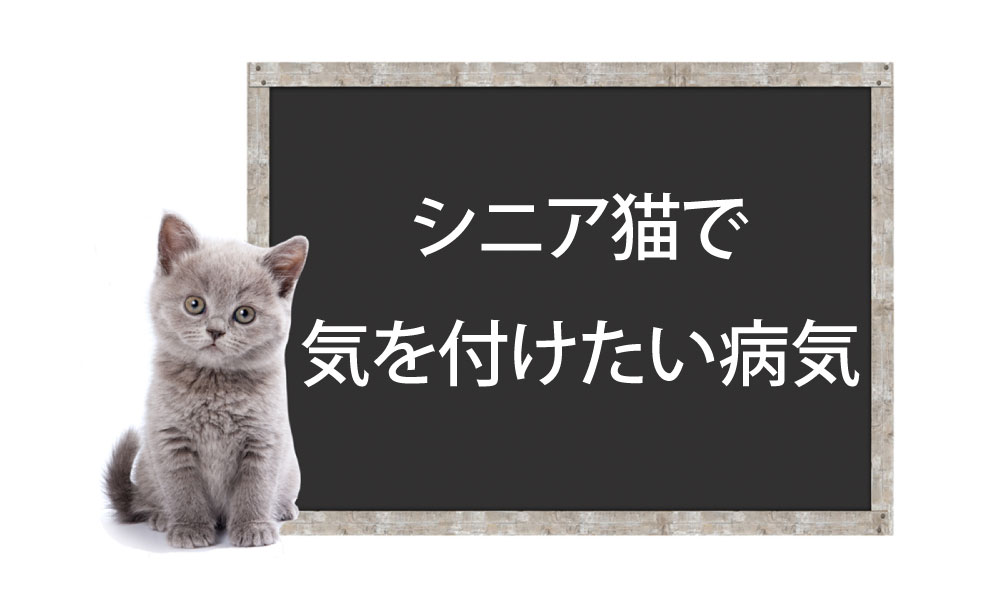The lifespan of cats is significantly increasing, and it’s not uncommon for them to live beyond 20 years. However, along with aging, their cells also grow old, leading to various diseases.
Among the most commonly consulted issues at Cordy Lab are:
1. Kidney Failure
2. Tumors
3. Hyperthyroidism
Let’s address each of these topics one by one.
Kidney Failure

As cats advance in age, a significant number suffer from kidney failure. Reports indicate that about 30% of cats over the age of 15 in overseas countries have chronic kidney failure.
Cats originally hail from deserts.
They do not have a natural habit of drinking a lot of water, causing their urine to be concentrated. This is believed to lead to blockages in their kidneys.
Furthermore, a 2016 study suggested that a unique protein called “AIM” in cat kidneys may not function adequately, which could be a predisposition for chronic kidney disease.
To prevent kidney failure, ensure your cat remains well-hydrated. Increasing the number of water stations, or changing the containers and the water’s temperature can also affect their water intake. It is recommended to have a number of water stations equal to the number of cats times two, plus two.
This might seem a lot, but by placing water stations in multiple locations, your cat can discover favorite drinking spots, which can then be reduced in number. At a minimum, ensure there are at least two water stations per cat. Another method is to switch from dry to wet food.
Even with proper hydration, if circulation in the body is poor, it can merely result in “swelling.” Swelling can lead to cooling of those areas, which in turn hinders immune cells from functioning effectively. Gentle massages that the cat finds comfortable, or keeping the back warm (or at least not cold), can improve circulation, so please give it a try.
We have additional articles focused on feline kidney failure, so please refer to them as well:
◆Kidney Failure in Cats and Dogs
◆Kidney Disease in Cats
Tumors

This issue is not exclusive to cats. As animals age, their immune systems gradually weaken. Tumor cells are generated every day, even in healthy bodies, but they don’t manifest as “lumps” because the immune cells are functioning effectively.
However, as they age, immune cells become less effective, allowing tumor cells to proliferate and manifest as tumors.
To prevent tumors, maintaining a stable immune balance is essential, as is minimizing stress and avoiding harmful substances (such as additive-laden foods, fragrances from air fresheners, or softeners).
From an Eastern medical perspective, tumors are believed to form in areas where there is blockage in the body’s circulation. As previously mentioned in the section on preventing kidney failure, ensuring good circulation is very important. Consider incorporating warming techniques or massages.
Hyperthyroidism
This is a disease where the regulatory function of the thyroid gland, which secretes essential hormones for healthy living such as those involved in metabolism and body temperature regulation, breaks down, resulting in the excessive secretion of thyroid hormones. It is more common in senior cats, with males being more frequently affected than females. Due to hyperactivated metabolism, symptoms may include increased appetite but weight loss, frequent loud meowing, excessive drinking, and a warm body.
The causes are varied, including thyroid tumors, environmental factors, immunity, and genetics. The incidence also appears to be increasing, likely due to cats living longer.
While prevention of hyperthyroidism is challenging, it is considered that stabilizing the immune balance could at least prevent the occurrence of hyperthyroidism due to tumors.
For detailed information on hyperthyroidism, please refer to a separate article:
◆ [Cat Hyperthyroidism](https://cordy-en.com/cat-hyperthyroidism/)
For improving cats’ immune strength
Stabilizing immunity is essential for maintaining health.
With the immune system balanced by Cordy, senior cats can live healthy and peaceful lives.
At the Cordy Research Laboratory, we are also advancing research on the relationship between common diseases in senior cats and nutrition.
Dr. Hayashi has experience in both alternative therapies and Western medicine in animal clinics and numerous clinical experiences with Cordy. During her time at Monolith, she received many consultations for cases that were difficult to manage with standard veterinary medicine (Western medicine) alone and deeply recognized the importance of immunity.
She advocates and promotes the idea that to maintain and improve pet health, it is crucial not only to rely on drug-based therapies but also to review daily living environments and diets and to incorporate various care measures at home to maintain immunity and aim for disease-free health.





